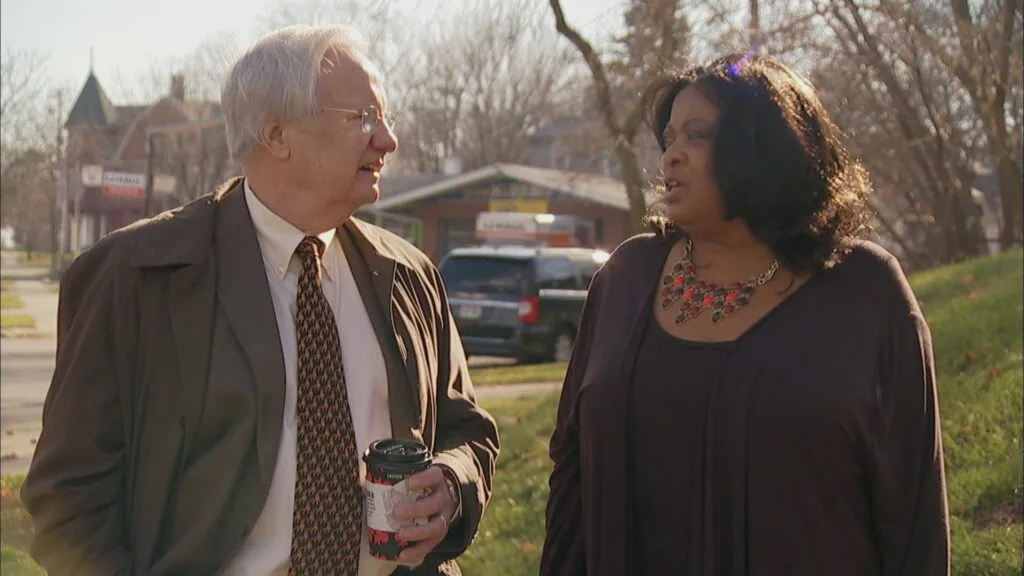Bill Moyers on Three Decades Documenting ‘Two American Families’ With Tom Casciato and Kathleen Hughes

August 2, 2024
For more than 30 years, and over the course of five documentaries, correspondent Bill Moyers and filmmakers Tom Casciato and Kathleen Hughes have returned to Milwaukee again and again to follow two families: one Black, the Stanleys, and one white, the Neumanns. The newest installment of the project, released this summer, chronicles the families’ struggle to stay afloat in a changing economy across three decades and six presidential administrations.
Moyers, Casciato and Hughes join host Raney Aronson-Rath to discuss how the project began and evolved over time, documenting moments they’ll never forget, what Two American Families says about America, and the powerful response to the Neumann and Stanley families’ stories over the years from the public media audience.
“I’ve watched a thousand films in my life, and I’ve never seen an audience, felt an audience, that wrote the way they did,” Moyers says of comments from viewers who saw their own lives reflected onscreen. “Real people dealing with real issues, practical issues, in their life, and they were getting it from a television show. That’s the highest compliment that I think we can expect as journalists, when they feel that we’ve shown them the world that they experience.”
You can stream Two American Families: 1991-2024 on FRONTLINE’s website, FRONTLINE’s YouTube channel and the PBS App.
Latest Documentaries
Explore
Policies
Teacher Center
Funding for FRONTLINE is provided through the support of PBS viewers and by the Corporation for Public Broadcasting, with major support from Ford Foundation. Additional funding is provided the Abrams Foundation, Park Foundation, John D. and Catherine T. MacArthur Foundation, Heising-Simons Foundation, and the FRONTLINE Trust, with major support from Jon and Jo Ann Hagler on behalf of the Jon L. Hagler Foundation, and additional support from Koo and Patricia Yuen. FRONTLINE is a registered trademark of WGBH Educational Foundation. Web Site Copyright ©1995-2025 WGBH Educational Foundation. PBS is a 501(c)(3) not-for-profit organization.



















